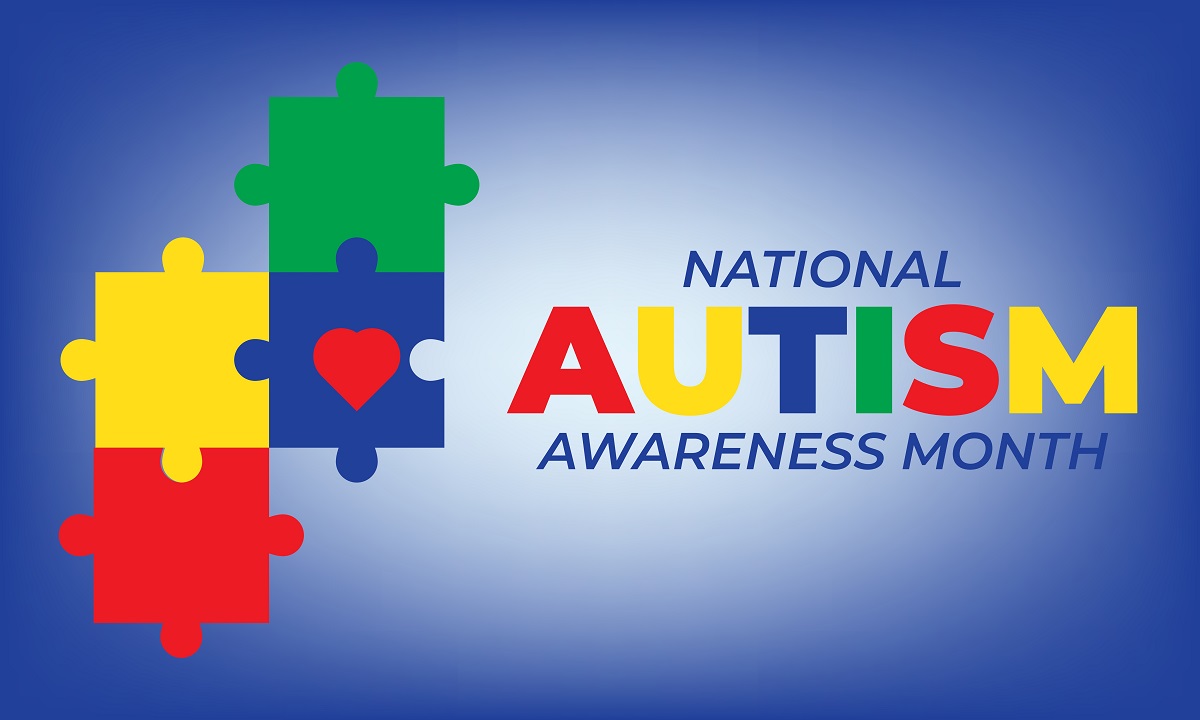Celebrating Autism Awareness Month

For many people, autism can be difficult to understand. In fact, early studies of autism hadn’t been carried out until the early 20th century, and even then it remained a contended diagnosis for a long time. Only in recent decades has it achieved more mainstream acceptance in the medical field. This is why it’s so important to spread autism awareness and help people identify the signs so that we can all help foster a more inclusive environment for all people to thrive, no matter where they may sit on the autism spectrum.
A great way to spread awareness is by observing National Autism Awareness Month.
When is autism awareness month?
World Autism Awareness Month 2023 will be celebrated throughout April, with World Autism Awareness Day being held on April 2nd.
What is autism and how does it affect people?
Also known as autism spectrum disorder (ASD), it’s a condition that affects how a person relates to their environment and with others. It is called a spectrum disorder because the symptoms and their severity can vary greatly from person to person. Autism is a form of neurodivergence, which means that the brain of an individual with autism functions differently from the typical or ‘neurotypical’ brain.
It is a lifelong condition that may cause a person difficulty with communication and social interactions, potentially leading to social isolation. A person with autism may perform restricted and repetitive behaviours, may experience enhanced sensory sensitivities, and may have intellectual impairments or learning difficulties.
Some people may struggle with autism throughout their lives, while others may learn to manage it up to a point where those close to them may not even be aware of their diagnosis. As a society, the better we can understand autism, the better the outlook we can help create for those living with it.

Common myths and misconceptions about autism
There are many, but some of the more pervasive myths include:
- Children with autism aren’t interested in making friends
- Autism is caused by vaccines
- Children with autism can’t learn
- Autism is caused by bad parenting
None of these myths are true, and in fact only serve to make autism acceptance a more difficult challenge than it already is.
What are some of the challenges faced by people with autism and their families?
As we’ve already mentioned, autism affects people in different ways so there’s no easy answer to this question. However, one of the biggest challenges for most is social development. Children with autism often suffer social exclusion due to the difficulty they can have interacting with other kids in a way that creates bonds. This isolation can cause developmental disabilities and can even prevent them from having a quality education.
The flow-on effects from this can be huge, including further social isolation in later life, and difficulty getting and maintaining employment.
As sensory sensitivity is also often a major challenge for many people with autism, it can be difficult to enter environments that may trigger these sensitivities. This may mean that some children with autism can’t experience a movie at the cinema, while others may not be able to participate in certain sports due to sensitivity to touch.

Common signs of autism
The person’s age may affect how autism manifests, but the following signs should be looked out for:
- Finding conversation difficult and failing to understand non-verbal cues
- Being around people might be unusually stressful and exhausting
- Having unusual physical movements like rocking or finger flicking
- Having heightened or lessened sensory experiences of sight, sound, touch, taste and smell
- Needing to follow routines and rigidly following rules in games
- Struggling to make friends
- Experiencing anxiety and displaying aggression to avoid overwhelming situations

Individuals with autism may develop intense interests or fixations on certain objects, activities, or topics, which can become all-consuming and interfere with other aspects of their life. These fixations or repetitive behaviors are often a way for individuals with autism to cope with their environment or manage their anxiety or sensory overload. While fixation or repetitive behaviors are not exclusive to autism, they are a hallmark symptom of the disorder.
Early diagnosis and prevention
Without a diagnosis, autism can make so many areas of life difficult, distressing and bewildering for an undiagnosed person. Once diagnosed, however, a child with autism can understand themselves better and realise they are not alone in the way they feel. Their parents and the professionals working with them can all learn how best to help them, and the right autism support services can be accessed and adaptations put into place at school.

The value of Positive Behaviour Support
Positive Behavior Support (PBS) is an evidence-based approach that can be effective in helping individuals with autism to reduce behaviours of concern and improve their quality of life. PBS aims to identify the underlying causes of behaviours of concern and unmet needs, and develop strategies to prevent these behaviours from occurring or replace them with more appropriate behaviours.
PBS is based on the principle that positive reinforcement and proactive strategies are more effective than punishment or reactive strategies in shaping behaviour. The goal is to prevent behaviours from occurring and intervene prior to a person escalating.
In a PBS plan, the focus is on identifying and reinforcing positive behaviours, rather than punishing negative behaviours.
PBS plans are individualised and tailored to the specific needs of the individual with autism. The process typically involves a team of professionals, including the individual with autism, their family, and their support team. The team works together to identify the triggers and contributors that lead to behaviours of concern, and develop strategies to prevent these behaviours from occurring. In addition, strategies are developed to meet the person’s underlying needs and improve their quality of life.
Overall, PBS can help individuals with autism to develop new skills, increase their independence, and improve their quality of life. It can also reduce stress and frustration for both the individual with autism and their support team.

How to participate in World Autism Month
Since 2008, the United Nations General Assembly has sanctioned and promoted this effort to raise public awareness of the challenges faced by those with the condition. Participating in Autism Acceptance month may be as simple as having discussions with family and friends, or even educating your children about autism and encouraging them to reach out to kids who may be experiencing social isolation. It may turn out that your kids could learn from the strengths of a child with autism, and become more resilient themselves as a result.
During this Autism Awareness Month, we at St. Jude’s extend our warmest wishes to everyone on the autism spectrum. We also urge everyone to join us in promoting greater acceptance and inclusion of individuals with autism in society.
|
|


